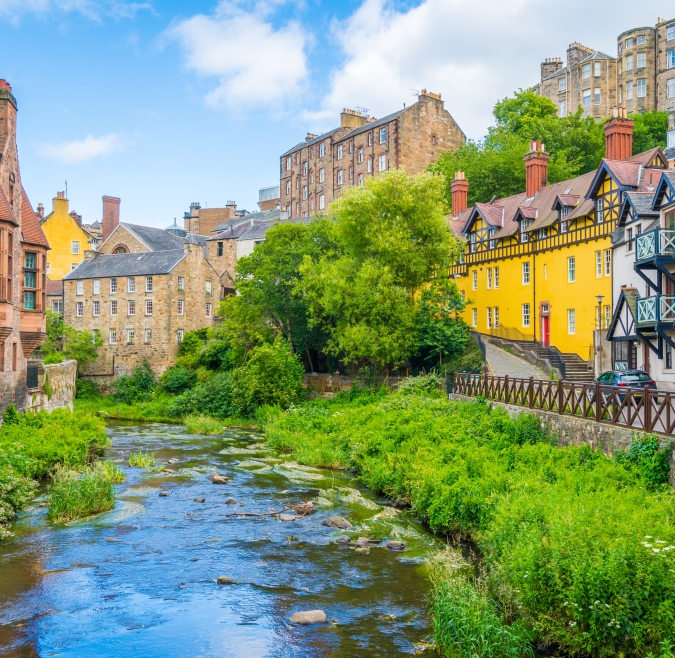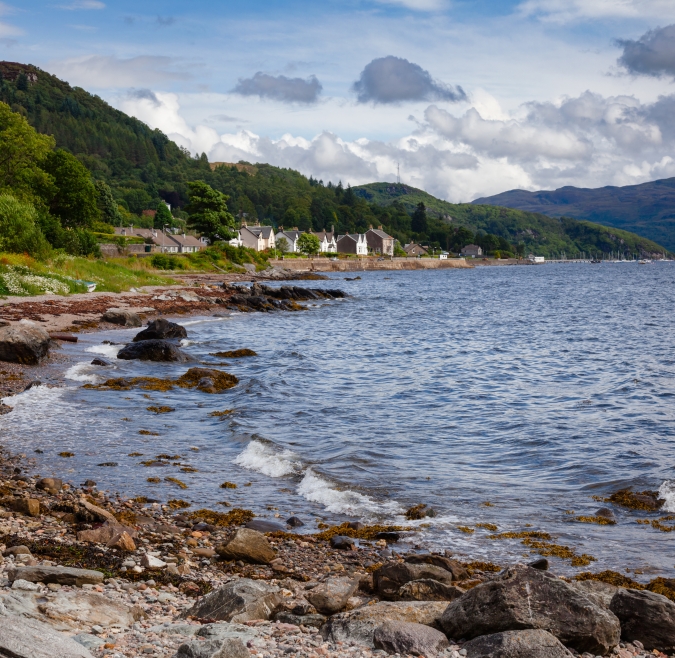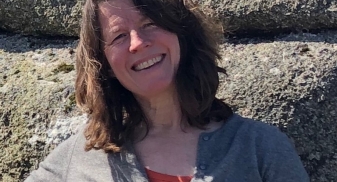Summer: Rutgers-Castles, Communities, and Sustainability: Lessons from Scotland for the 21st Century
The Program
Fàilte gu Alba!
This course will take students to Scottish cities and communities in urban, rural, and island locations. We will meet with people and organizations actively working to create sustainable communities and to increase the overall economic, health, and social wellbeing of these communities. Scotland is a magical place where magic is created through everyday conversations and encounters in ordinary places. People and place define the Scottish experience and students will engage in conversations and hands on activities with people doing sustainability and creating magic in their own communities. We will learn about contemporary Scottish sustainability challenges rooted in history, culture, and identity and the solutions that diverse communities across Scotland are creating to build more sustainable and resilient communities that increase well being over time.

Program Locations

Scotland
Edinburgh
Visits in Edinburgh will include Holyrood (Royal Park, Holyrood Education Center, Scottish Parliament), Craigmillar (Craigmillar Castle, Bridgend Farm, Arts/Theater Organizations) Old Town, New Town, National Museum of Scotland, and King Arthur’s Seat.

Scotland
Glasgow
Visits in Glasgow will include Mural Tour, Walks & Hikes with Boots & Beards, Gallery of Modern Art, Kelvingrove Museum, Museum tour and dinner with Our Colorful Heritage.

Scotland
Highlands & Islands
Visits in Cowal will include Dunoon, Glendaruel, Otters Ferry, Kilfinan, Kilmun, Tighnabruaich, Colintraive, and Benmore Botanical Gardens. We'll also travel to Bute and visits will include Rothesay, Stuart Trust, Bute Community Forest, beaches, fields, and woodlands.
Academics
Castles, Communities, and Sustainability: Lessons from Scotland in the 21st Century will introduce students to contemporary challenges of Scottish sustainability rooted in the history, identity, and culture of Scotland. Scotland is a leader in sustainability practices and provides a unique, bounded case study through which to explore sustainability practices and policies rooted in culture, identity, institutions, and history. Since 1999 Scottish law and policy (independent of United Kingdom laws and policies) have focused on empowering people and communities to engage in sustainable activities that increase economic and social well-being at neighborhood, community, and regional levels
Students will engage with communities that are actively engaged at hyperlocal, grassroots, neighborhood, and community levels to address sustainability and wellbeing challenges in people’s everyday lives. Students will engage in volunteer work with at least two of our community partners for one afternoon on two different days during our visits to these communities or organizations. The course begins with an overview of Scottish Geology and History at Holyrood Park, an ancient open space of significant symbolic importance to Scotland which is located near both the Scottish Parliament and the Royal Palace at Holyrood. The program also includes a visit and tour to the Scottish Parliament and potential meetings with Scottish Ministers. These first few days set the historical and institutional context of the course before we depart for community sites and related visits to museums and institutes. A key goal is to introduce students to the tensions between institutional and community or place based approaches to sustainability, the collaborative possibilities of cross-sector work, and the creative solutions that communities devise to address issues of sustainability, resilience, and wellbeing.
This course places community engagement in a broader, comparative perspective for Rutgers students and enhances student success by building small, engaged cohorts willing to translate these experiences into independent and honors research projects, as well as international internships. Students can use those experiences to identify areas for future research, capstone projects, graduate education, jobs, or internships.
The course meets the experiential learning requirements of the School of Environmental and Biological Sciences and the Department of Human Ecology. The course will be multi-site and encompass both urban and rural regions of the country, as well as introduce students to the multiculturalism of 21st century Scotland. The intent and design of the program is to have students learn from people deeply engaged with problems of sustainability in their own communities and regions and bring that knowledge back to their studies at Rutgers.
Housing and Meals
Accommodations will be mainly in youth hostels with the potential for some self-catering accommodations and hotels depending on location, availability of accommodations and course need. At most accommodations breakfast is provided. Meals will vary by location, activity and event. At least 2/3rds of meals will be student responsibility. Wherever possible we have booked accommodations with kitchen facilities so we can store food for lunch and cook communal dinners (Professor Harris is a pretty good – and creative – cook).
Financial Information
Program Costs
| NJ Resident | non-NJ Resident | |
|---|---|---|
| Undergraduate | $4,750 | $5,130 |
| Graduate | $4,980 | $5,340 |
Program Cost includes:
- Tuition
- Housing
- In-country transportation
- Some meals
- Excursions
- Administrative Fees
- Emergency Medical Access Abroad
Out-of-Pocket Costs
| Airfare | $1,200 |
| ETA application | $20 |
| Meals | $400 |
| Local Transportation | $50 |
| Personal Expenses | $400 |
| Total | $2,070.00 |
Out-of-Pocket Cost includes:
The above costs are estimations and represent the known out-of-pocket costs students encounter during their time abroad.
Some of these expenses will be paid for prior to going abroad, such as an airline ticket, while some of these expenses, such as meals and personal expenses, will be paid in-country as part of your daily expenses. As you plan, you will need to budget these costs and spend wisely throughout your time abroad.


